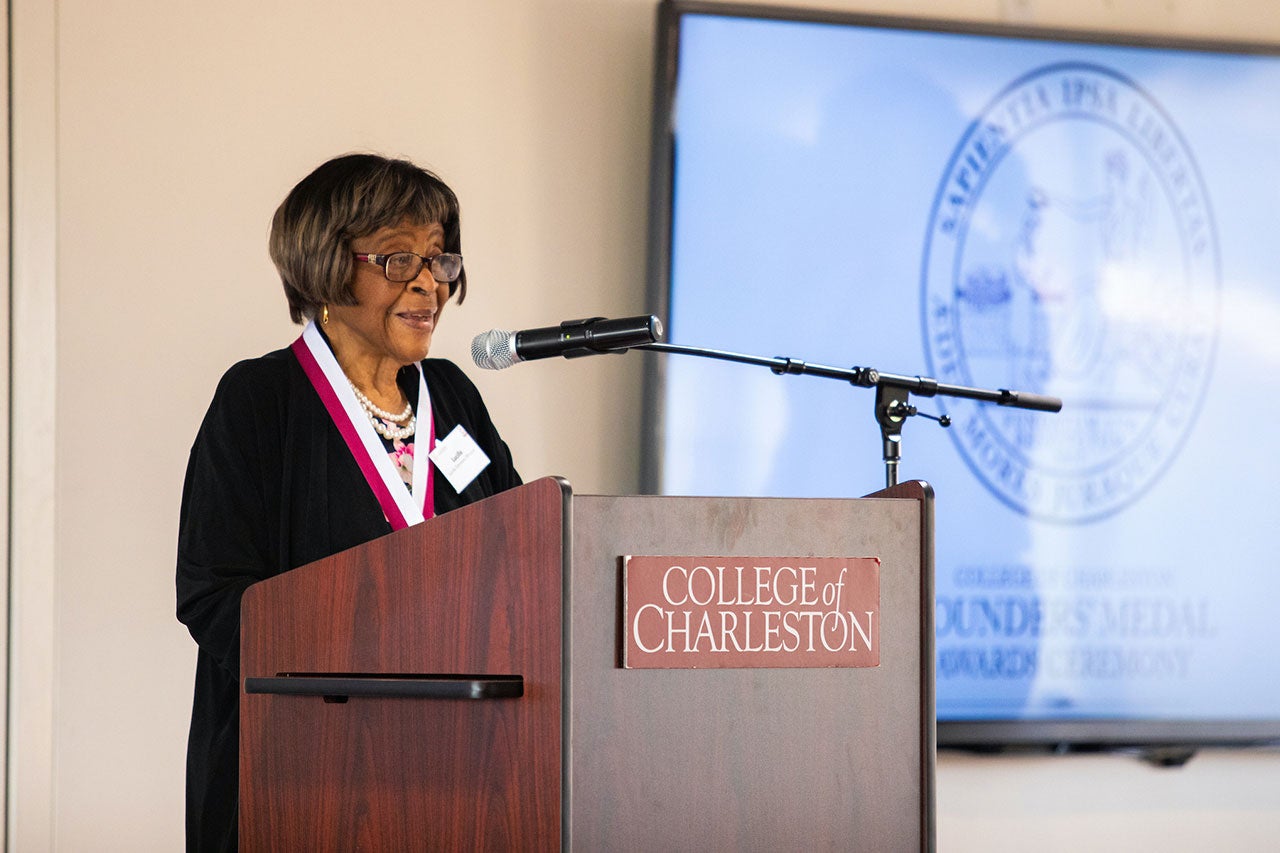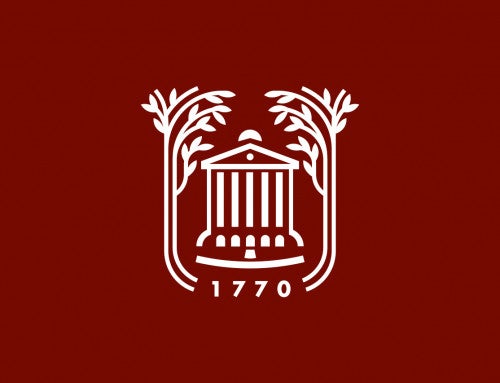Above: Lucille Simmons Whipper speaks during a ceremony in January 2020 when she was awarded the College’s Founders’ Medal.
A private funeral service for former S.C. state representative and College of Charleston administrator Lucille Simmons Whipper will take place at the College’s Sottile Theatre on Saturday, Sept. 4, 2021.
Whipper, 93, passed away last week. A private viewing will be held at 11 a.m. followed by the funeral at noon. The funeral service will be livestreamed on the Facebook page for the Avery Research Center for African American History and Culture.
Known as a changemaker and community activist, Whipper became the first Black administrator at CofC in 1972. She made history again in 1985 when she was elected as the first Black woman to represent Charleston County at the South Carolina Statehouse.
Whipper was also instrumental in preserving her high school alma mater, the Avery Normal Institute, a segregated school that served Black students from just after the Civil War in 1868 until 1954. Through a partnership with CofC, the institute reopened its doors in 1990 as the Avery Research Center for African American History and Culture.
“During her lifetime, Lucille Simmons Whipper acquired numerous achievements and garnered countless accolades. But one of her most shining accomplishments is facilitating the establishment of her former school, the Avery Institute, into the College of Charleston’s Avery Research Center for African American History and Culture,” notes the Avery Research Center’s digital exhibit honoring Whipper. “Her initiative and perseverance steered the transformation of Avery into an archival repository, small museum and cultural center for academic and public programming.”
RELATED: Former CofC Administrator Lucille Whipper Remembered as a Trailblazer
As part of the exhibit, Aaisha Haykal, manager of archival services for the Avery, recalls meeting Whipper for the first time and the powerful impact it had on her and her understanding of the Avery’s significance.
“I initially met Mrs. Whipper when I was a fellow at the College of Charleston’s Avery Research Center for African American History and Culture in 2011. She was one of the first native Charlestonians I met,” remembers Haykal. “Meeting with her helped me gain more realization about the Avery Research Center’s importance not just for the scholars and patrons who come from afar to do research, but also for the local people of Charleston and the South Carolina Lowcountry. The Avery Research Center is not just a collection of images and documents; it is also a space about the people, a definitive statement that says, ‘We were there. We did the work. We will continue to do the work. We are not going anywhere.'”




